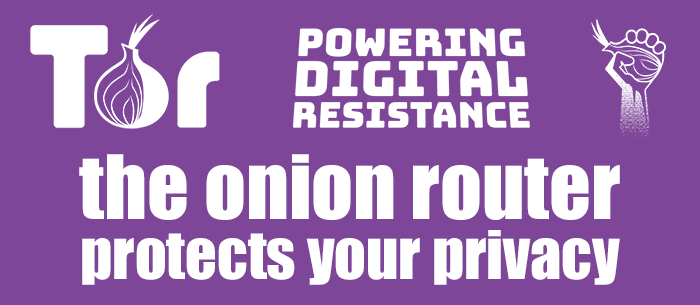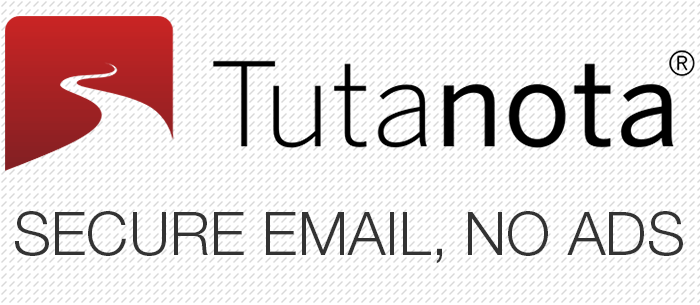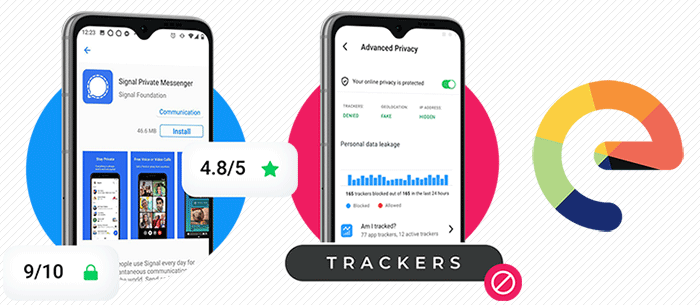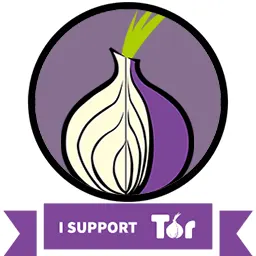
Home Anonymous Operations Civil Liberties in the Digital World Tor Guide - Freedom & Privacy Online
Thursday 30 November 2017
français >
Tor Powering Digital Resistance.
The landscape of the Internet is in a constant state of change, and trends in law, policy, and technology threaten anonymity as never before, undermining our ability to speak and read freely online. Countries are watching each other as well as their own citizens, blocking websites, watching traffic content, and restricting important world news.
We’ve gotten very used to the Internet. We are constantly sharing information about ourselves and our private lives: food we eat, people we meet, places we go, and the stuff we read. Right at this moment, if someone attempts to look you up, they’ll see your real identity, precise location, operating system, all the sites you’ve visited, the browser you use to surf the web, and so much more information about you and your life which you probably didn’t mean to share with unknown strangers, who could easily use this data to exploit you.
Tor Browser protects our privacy and identity on the Internet.
Tor secures your connection with three layers of encryption and passes it through three voluntarily operated servers around the world, which enables us to communicate anonymously over the Internet. By downloading and using Tor, you can protect the people who need anonymity, like activists, journalists...
Tor is an invaluable tool for protecting online freedom
and guarding against state surveillance and censorship.
On a global playing feld, censorship takes on a whole new meaning. Restricting access to information and monitoring outgoing content is more common than most people realize. The censorship researchers at Tor work to build tools that stay ahead of censorship tactics and provide open channels of communication for everyone online. The Tor team builds partnerships to raise awareness and educate people about the importance of privacy online and freedom of speech online.
No Logs, No Backdoor.
Tor protects you by bouncing your communications around a distributed network of relays run by volunteers all around the world : it prevents somebody watching your Internet connection from learning what sites you visit, and it prevents the sites you visit from learning your physical location.
– Activist groups like the Electronic Frontier Foundation (EFF) recommend Tor as a mechanism for maintaining civil liberties online.
– The vast majority of Tor users are ordinary citizens who want to stay in control of their privacy online — or censored users who need to circumvent Internet blockage.
– Tor users can rely on the privacy of Tor. By design, a Tor relay operator or someone with physical access to a Tor relay cannot reveal a Tor user’s IP address. Continual peer review of Tor’s source code by academic and open source communities ensures that there are no backdoor in Tor.
– Tor provides the most secure infrastructure for a truly anonymous online tip line critical in keeping channels of communication safe for witnesses and informants.
Installation Instructions.
Tor Browser is an easy-to-use, portable package of Tor. Setting Tor up outside of Tor Browser Bundle correctly requires a user to self-educate significantly so as not to allow security holes.
Tor Browser lets you use Tor on Microsoft Windows, Apple MacOS, or GNU/Linux without needing to install any software. It can run off a USB flash drive, comes with a pre-configured web browser to protect your anonymity, and is self-contained (portable).
Developers and advanced users.
If you don’t fall into one of these two categories then for your own security, stick with the Tor Browser Bundle. This article was originally written for a Linux/UNIX based environment.
– Wiki Tor Projet - Torify HOWTO
Windows
-
Download the file Tor Browser Bundle (TBB)
- And save it somewhere, then double click on it. (1) Click "Run" then choose the installer’s language and click OK (2). Make sure you have at least 80MB of free disk space in the location you select. If you want to leave the bundle on the computer, saving it to the Desktop is a good choice. If you want to move it to a different computer or limit the traces you leave behind, save it to a USB disk. Click Install (3) Wait until the installer finishes. This may take a few minutes to complete.
Linux
-
Download the file Tor Browser Bundle (TBB)
- Download the architecture-appropriate file, save it somewhere. Do not unpack or run TBB as root.
- To run Tor Browser, click either on the Tor Browser or the Tor Browser Setup icon or execute the start-tor-browser.desktop file in a terminal: ./start-tor-browser.desktop
Mac OS X
-
Download the file Tor Browser Bundle (TBB)
- Download the file, save it somewhere, then click on it. This opens the .dmg file. Drag the included file into your Applications folder and you will have a Tor Browser application in your chosen language that you can pin on your Dock.
Android
-
Tor is available for Android by installing Orbot
Orbot is a free proxy app that empowers other apps to use the internet more securely. Orbot uses Tor to encrypt your Internet traffic and then hides it by bouncing through a series of computers around the world. Orbot creates a truly private mobile internet connection.
Orbot contains Tor and libevent. Orbot provides a local HTTP proxy and the standard SOCKS4A/SOCKS5 proxy interfaces into the Tor network. Orbot has the ability to transparently torify all of the TCP traffic on your Android device when it has the correct permissions and system libraries.
Warning!
Tor does not protect all of your computer’s Internet traffic when you run it.
Tor only protects your applications that are properly configured to send their Internet traffic through Tor. To avoid problems with Tor configuration, we strongly recommend you use the Tor Browser. It is pre-configured to protect your privacy and anonymity on the web as long as you’re browsing with Tor Browser itself.
Tor Browser will block browser plugins such as Flash, RealPlayer, Quicktime, and others: they can be manipulated into revealing your IP address. Similarly, we do not recommend installing additional addons or plugins into Tor Browser, as these may bypass Tor or otherwise harm your anonymity and privacy.
Tails - Privacy for anyone anywhere.
Tails is a live operating system that you can start on almost any computer from a USB stick or a DVD.
- It aims at preserving your privacy and anonymity, and helps you to:
– Use the Internet anonymously and circumvent censorship.
– All connections to the Internet are forced to go through the
– Use state-of-the-art cryptographic tools to encrypt your files, emails and instant messaging.
– Leave no trace on the computer you are using unless you ask it explicitly.
– Tails comes with several built-in applications pre-configured with security in mind: web browser, instant messaging client, email client, office suite, image and sound editor, etc.
- Official website - Tails “The Amnesic Incognito Live System”
Tor hidden-service - Anonymous Launched “Onion IRC” a New Deep Web Chat Service. The collective CyberGuerrilla #CgAn (AnonNexus) works to protect your privacy.
Hackers, activists, artists and internet citizens, join us in a collective effort to defend the internet and our privacy. Setup and configuration of IRC clients to work correctly with Tor is considered a more advanced subject and it is therefore up to the user to self-educate in these matters as step-by-step help will generally not be given.











